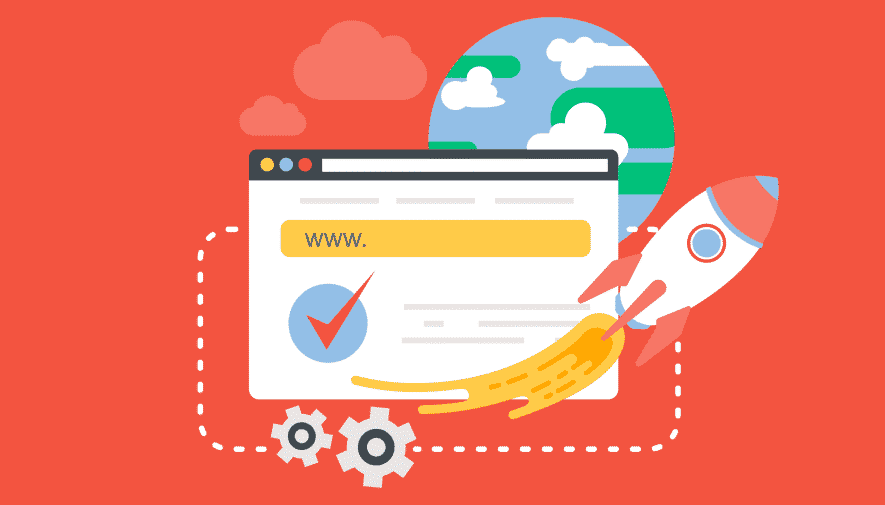It’s not a trick question: is your Speed up Your Website fast enough? Page load times can impact everything from how long users stay on your site (or if they see the content), to search rank and overall conversions.

Speed up Your Website matters on two fronts – for desktop and mobile devices – with mobile speed mattering more than ever. Not only does your website have to load fast; it needs to load fast everywhere.
So how do you do it? Start by running a Google Page Speed test to see where your site ranks (you’ll get a few suggestions for speeding up your site there as well). Then, start making these tweaks to make your website lightning fast this year.
1. Don’t do too much of things on your website: One of the best ways to keep your website zippy and usable is to keep it simple. The same principle that applies to the design of the website also applies to functionality as well.
One trap of website design can be adding too many effects and features that dramatically bog down load times. Do you need several fancy animations on images? Do you need a video slider on the home page? Do you need three plugins to do something that a little custom development could do?
All of these things can make your website slow. Stripping out unnecessary elements and features can have a huge impact on speed, and consequently usability.
2. Clean Up The Database: How long have you been working from the same website database? Particularly if you are using WordPress, it can get quite messy over time. (Think of it like a closet where you just keep storing things that you might need one day.Clean it out.
Declutter your database and remove anything that’s not used anymore. This can include anything from graphic assets and files to plugins and extraneous JavaScript.
A smaller, lighter database will return files faster. (It also makes for lighter, easier to manage backups.)
3. Take Care with Java Script: Most of the cool stuff that happens on your website is likely the product of JavaScript. And it can get heavy. But that’s OK if you take care with how you handle JS queries and loads.
– Use asynchronous loading for JavaScript files: This speeds up pages because files are loaded simultaneously, rather than from top to bottom. The nifty trick with asynchronous loading is that if one file gets stuck or stops, it doesn’t bog down the rest; those scripts will continue to load and function.
– Defer some JS files from loading: Tell some JS files, particularly large files that don’t impact immediate functionality, to load after all other elements are complete. You can learn to do it here.
– Optimize and minify: This just makes good sense – smaller files will load faster. Don’t forget to minify that JS.
– Put JavaScript at the bottom of files: Other elements and JS don’t load together well. Solve this problem by letting HTML content load before JavaScript.
4. Remove Unwanted Redirects: Are you still redirecting pages from two redesigns ago? Stop it. That’s killing load times.
While some redirects are a necessary evil, keep them to a minimum.
Use a tool such as the Redirect Mapper to figure out what redirects are active on your site, and eliminate ones that you didn’t know where there. Moving forward, consider updating out of date pages rather than adding new pages with similar content. It’s a lot better for search optimization, and all those links will continue to work!
Choose the Right Hosting: The right hosting account can make or break speed. If you have tried many of the other fixes here and are still having Speed up Your Website issues, your host could be to blame.
With so many choices, it can be tough to find the best hosting plan for your money. When it comes to hosting that’s built for speed, look for a dedicated server option. The preferred choice for most website owners is VPS hosting, which offers faster load times, but you don’t have to manage the hosting yourself.
Summing Up:
What are you doing to ensure that your website is built for speed in 2020?
Following best practices for desktop and mobile speed impacts more than just how quickly users can see your website. It influences site rank, search optimization, and conversion rates as well. (How is a user supposed to buy a product if the page doesn’t load?)
Make it a point to start cleaning up your code and optimizing your site, even if you just do one of these things per month, you’ll start to see results. Good luck!
